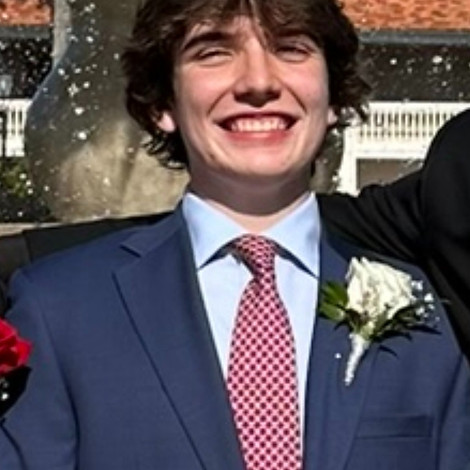Greetings! I'm Chris
I'm a freshman at Florida State University in Tallahassee, Florida. This is site is a compilation of my literary works compiled throughout my time in ENC2135. Throughout this site you will find a variety of artifacts and pieces I have written, and my final thoughts on my experience in the course.


Chris Lynch
Scholar, Writer, Friend
904-315-8739
Email:
Address:
77 Glorieta Drive, Saint Augustine Florida
Date of Birth:
January 15, 2005
Phone:
ARTIFACTS
Artifact 1
11/29/23
Draft Email and Survey
Artifact 2
For my third project, my Multi-Genre Persuasive Campaign, I focused on the issue of residual impacts of the COVID-19 Pandemic on Florida State Students. In this artifact, I created a draft email to students, with an accompanying survey to document their experiences.
12/4/23
Rhetorical Rationale
Accompanying the above mentioned email and survey, I created a Rhetorical Rationale in which I analyze and commentate on which choices I made were effective, and those that could be improved upon. Often times, deconstructing ones own work is a great window into any possible improvement
Artifact 3
Introduction Letter
8/30/23
In this short response, I respond to a prompt challenging me to "Pick one thing I would change in the world, and why" as well as detail a little about myself, while maintaining a count of under 250 words.
REVISION
Editing & Revision
One great skill I was able to polish this year in ENC2135 was my ability to revise and edit my work. Through multiple drafts and peer workshops, It became easier and easier to improve and refine my work. On the right is a copy of my Investigative Field Essay final draft. The paper centers around the varying impacts COVID-19 had on low income students across the United States. After lots of review and peer feedback, this was my final product.
Investigative Field Essay Final Draft
This is the final of three drafts, which took about a month to finally complete.
REFLECTION
A reflective statement on how ENC2135 has bettered me as a writer.
Throughout ENC2135, the course has offered me many new and unique perspectives on writing. Specifically, the course taught me to consider the genre of literary works, and that one trait may impact the composure and rhetoric of that said work. This is due mainly to the coursework and projects incorporated within the ENC2135 framework. Throughout the drafting and revision process for my Investigative Field Essay, Rhetorical Analysis, and Multi-Genre Rhetorical Campaign, the importance of genres and their respective conventions on composure and rhetorical devices became abundantly clear. Throughout all three major projects, the course allowed me to develop into a more well-rounded writer and communicator.
During the composition of my Investigative Field Essay, the importance of genre was revealed through the project’s emphasis on the style of academic writing. Having to read lots of scholarly articles, often peer reviewed and found through online databases, the distinct conventions of that genre distilled to me the importance of considering genre when writing. Additionally, when composing my Field Essay, adhering to the conventions of academic writing was equally important. When responding to and discussing the content of academic articles, the same formula of academic writing must be applied. This includes everything from word choice to adherence to MLA style guidelines, especially when citing evidence to ensure it is done properly. The fact that the project centered around the genre of academic writing was a great way to introduce the importance of genre, as well as how genre must influence the composition of any piece of writing.
In the latter two projects, the Rhetorical Analysis and Multi-Genre Rhetorical Campaign, the emphasis was more on the importance and variety of rhetoric, as the names would suggest. These projects build on the previous foundation of understanding genre and composition by showcasing how both influence the rhetorical strategies utilized by authors. In the 2nd project, analyzing other rhetorical artifacts related to my topic of COVID-19’s impact on student was a great help in gathering a further understanding of rhetorical devices, and more importantly rhetorical choices made by authors. This all came full circle when I then produced rhetorical artifacts of my own and had to analyze and deconstruct which of my choices were effective and which weren’t, largely based upon the genre of each artifact and how well my rhetorical choices meshed with said genre’s conventions.
Altogether, ENC2135 and its project focused coursework did wonders for my development as a writer. Additionally, special credit should be given to Ms. Sanders, as she explained the aforementioned concepts in a way that made them easily digestible, and easy to implement within my writing for the class. Through great teaching and lots of drafting and revision, the principles of genre, composition, and rhetoric were woven together excellently throughout the course curriculum. Looking back now as my time in the class comes to a close, I can confidently say that the three main projects of the course have permanently changed my style and understanding of writing for the better. The courses framework was so successful especially due to way in which Ms. Sanders taught the class, and I am grateful for her being there to explain and aid my implementation of the course’s principles.



